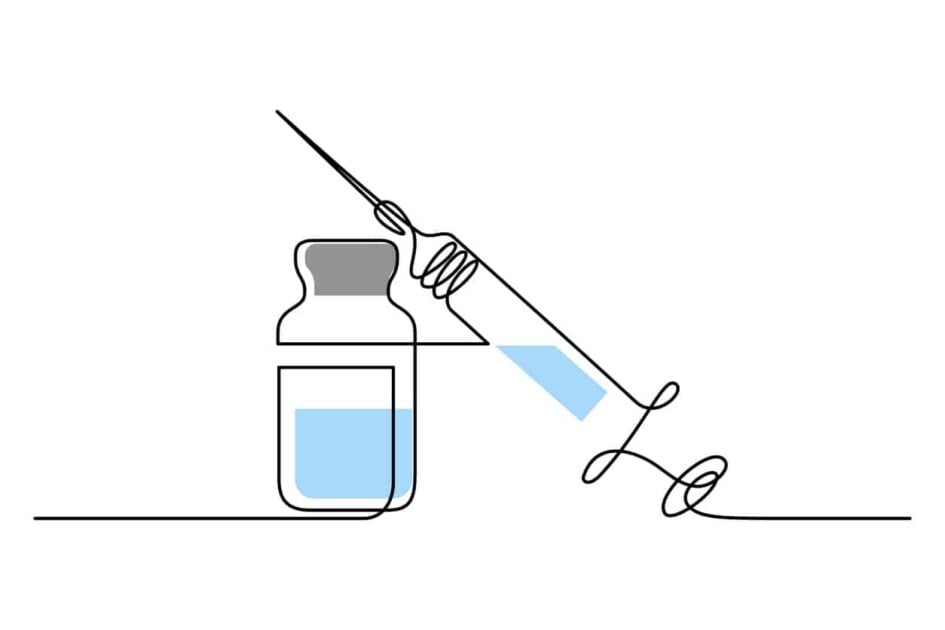Hepatitis A: Causes, symptoms, and vaccination
Learn more about Hepatitis A and how to prevent it with a vaccine

What is hepatitis A?
Hepatitis A is a virus that infects the liver. It usually causes a mild illness that will go away on its own within 1 to 2 weeks, without needing any treatment. Occasionally it can cause a more severe illness lasting several months. Most people will make a complete recovery.
Hepatitis A infection occurs worldwide though it is now rare in Western Europe, including Ireland. Recently, sexually transmitted hepatitis A has been increasing in men who have sex with men (MSM) across Europe, including Ireland.
A safe and effective vaccine is available for the prevention of hepatitis A infection. If you go for an STI check-up, you can ask your nurse or doctor about whether getting the hepatitis A vaccine is right for you.
How do you get hepatitis A?
Hepatitis A virus is usually spread from person to person by the faecal-oral route (that is, getting something in your mouth that has been contaminated with the faeces (poo) of an infected person). Sometimes it is spread through food that has been contaminated by infected food handlers or by contaminated water.
You can also get hepatitis A through sexual activity, such as rimming (mouth-to-anus contact) and/or swallowing something that has been infected with faeces.
What are the symptoms of hepatitis A?
Hepatitis A symptoms can take some weeks to appear if you have picked up the infection. Most people who get hepatitis A do not experience any symptoms.
The most common symptoms of hepatitis A are:
- Fever
- Tiredness
- Loss of appetite
- Feeling sick (nausea)
- Diarrhoea
- Stomach pain or discomfort
- Dark-coloured urine (pee)
- Pale faeces (poo)
- Jaundice (yellowing of the skin)
Severe illness with hepatitis A can cause very bad symptoms and very occasionally acute liver failure, which can cause death.
How can I be tested for hepatitis A?
Testing for hepatitis A involves a blood test that looks for your body’s reaction to the infection (antibodies). If you go to an STI clinic for a check up you can ask about being tested for hepatitis.
How can I prevent myself from getting hepatitis A?
There are vaccines that prevent infection with hepatitis A. You can speak to a nurse or doctor at a sexual health clinic to ask about the vaccines that are available to you. Some of these may be free of charge if you are part of a group that is more at risk of getting hepatitis, such as men who have sex with men. A vaccination for hepatitis B is also available.
Vaccination is recommended for:
- Men who have sex with men and partners
- People in recent close contact with infected individuals
You can also help avoid hepatitis A by:
- Washing hands after before and sex
- Washing genitals before and after sex
- Washing anus before and after sex
- Changing condoms between anal and oral sex
- Using latex gloves for fingering or fisting
- Using a barrier for rimming (such as a square of latex)
- Not sharing sex toys or douching equipment
Can hepatitis A be treated?
There is no specific treatment for hepatitis A and it usually clears on its own.
If you have symptoms of hepatitis A, treatment usually involves making sure that you are not dehydrated and your blood salts are okay, sometimes this involves having a drip of fluids into your vein in the hospital.
Do I have to tell my partners I have hepatitis?
If you have hepatitis A, the people you have sex with may be at risk of getting the infection from you and will need to be tested and offered vaccination. If you go to a sexual health clinic, this will be explained to you by the doctor or nurse who sees you. You might feel nervous about telling a partner you have hepatitis, but it is the best thing to do to help protect their health. Read our article on telling your partner you have an STI for advice on how to have that conversation.
When can I have sex again?
Your partner or any new partners should be tested and vaccinated against hepatitis A before you have sex with them. The vaccine can stop a person from getting hepatitis if taken before having sex with someone with the virus.
What happens if my hepatitis A is left untreated?
There is no specific treatment for hepatitis A and it usually clears on its own. Hepatitis A infection does not usually lead to long-term liver problems and is rarely fatal. If you think you may have hepatitis A or any other STI it is important to go for an STI check-up. Check-ups are free and having regular ones is the best way to protect your health and the health of those you have sex with.
Looking after your mental health after an STI diagnosis
If you are diagnosed with an STI, you might feel a mixture of emotions. Unfortunately, there is still stigma in our society surrounding STIs that can cause some people to feel shame about having one. However, like any other healthcare diagnosis, you are not to blame for your STI and have not done anything “wrong”. Being diagnosed with an STI can have a negative impact on your mental health and wellbeing and if you don’t feel comfortable telling friends or family about it, you might feel isolated and alone. If you have found out you have an STI and you’re finding it difficult to cope, there are things you can do to support your mental health.
- Remember that STIs are common and lots of people have one at some point in their life, even though they aren’t talked about a lot
- Take time out to do something you enjoy and practice self-care
- Reach out for mental health support if you need it. If you don’t feel comfortable talking to a friend or family member, our 24/7 anonymous text service, 50808, can help
- Be patient with yourself and allow yourself to feel your emotions. It’s ok to be upset when you find out you need healthcare treatment. It’s important to take the time you need to adjust
Feeling overwhelmed and want to talk to someone?
- Get anonymous support 24/7 with our text message support service
- Connect with a trained volunteer who will listen to you, and help you to move forward feeling better
- Whatsapp us now or free-text SPUNOUT to 50808 to begin.
- Find out more about our text message support service
If you are a customer of the 48 or An Post network or cannot get through using the ‘50808’ short code please text HELLO to 086 1800 280 (standard message rates may apply). Some smaller networks do not support short codes like ‘50808’.






